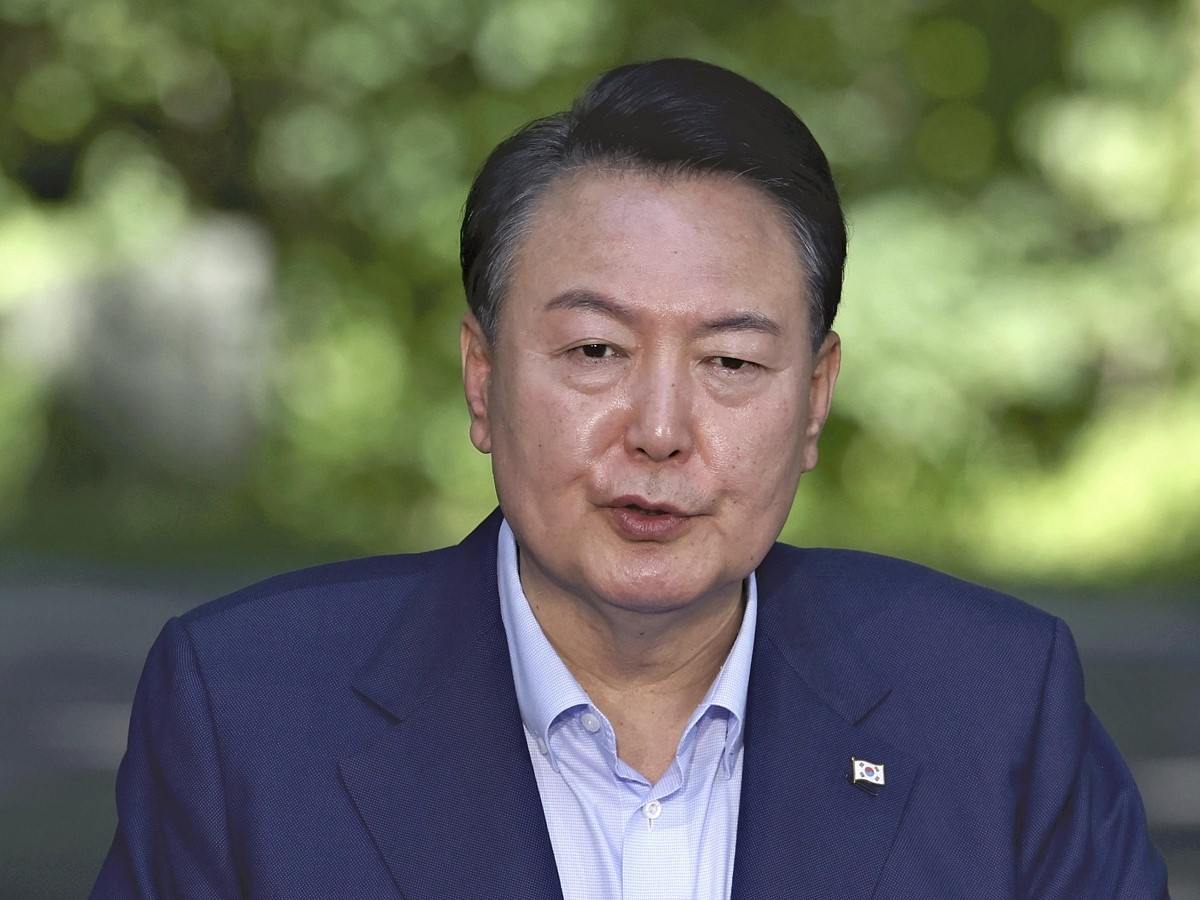South Korea Compensates Former Requisitioned Workers But Four Holdouts Keep Seoul from Achieving Goal

South Korean President Yoon Suk Yeol speaks during a joint press conference at Camp David, Md., on Aug. 18.
6:00 JST, September 7, 2023
SEOUL — Progress is being made in South Korea in resolving the lawsuits surrounding former requisitioned workers from the Korean Peninsula.
More than two-thirds of the plaintiffs have received compensation from a Seoul-affiliated foundation in a plan announced by South Korean President Yoon Suk Yeol in March.
Some plaintiffs have refused to accept the money, however, and some district courts have issued rulings that have slowed down the settlement process. Given these aspects, it will be some time before the situation settles.
The South Korean Supreme Court in 2018 finalized a lower court ruling ordering Japanese companies to pay compensation to the plaintiffs. This became a thorn in the side of relations between Japan and South Korea.
The main pillar of the solution proposed by Yoon’s administration is a third-party compensation scheme. A foundation under the umbrella of the government will pay the plaintiffs compensation equal to the amount that the Japanese companies have been ordered to pay.
Eleven of the 15 plaintiffs have so far accepted the money under the government’s compensation scheme.
Among the plaintiffs, one of the three former requisitioned workers who had refused to accept compensation from the foundation later agreed to accept it. For those who have died, compensation is paid to the bereaved family members.
In July, the Seoul foundation began the process with district courts to deposit an amount equal to the compensation for the four plaintiffs who have yet to accept the money. The government wants the funds disbursed so that it can achieve the objectives of its compensation plan.
The district courts, however, turned down the applications to deposit compensation for the plaintiffs, stating that it was clear that these plaintiffs are opposed to receiving the money.
The courts dismissed objections filed by the foundation, which now intends to appeal.
As the Supreme Court will need to be involved over whether the compensation can be deposited, some observers hold the view that it will take several years for such a decision to arrive.
The Supreme Court’s chief justice will be replaced in the near future and a conservative who is close to Yoon has been nominated as the successor. He is expected to be on the Supreme Court if the nomination is approved by the National Assembly, but opposition parties are expected to oppose the nomination.
Top Articles in World
-

China Confirmed to Be Operating Drilling Vessel Near Japan-China Median Line
-

China Eyes Rare Earth Foothold in Malaysia to Maintain Dominance, Counter Japan, U.S.
-

Japan, Qatar Ministers Agree on Need for Stable Energy Supplies; Motegi, Qatari Prime Minister Al-Thani Affirm Commitment to Cooperation
-

North Korea Possibly Launches Ballistic Missile
-

10 Universities in Japan, South Korea, Mongolia to Establish Academic Community to Promote ICC Activities, Rule of Law
JN ACCESS RANKING
-

Univ. in Japan, Tokyo-Based Startup to Develop Satellite for Disaster Prevention Measures, Bears
-

JAL, ANA Cancel Flights During 3-day Holiday Weekend due to Blizzard
-

China Confirmed to Be Operating Drilling Vessel Near Japan-China Median Line
-

China Eyes Rare Earth Foothold in Malaysia to Maintain Dominance, Counter Japan, U.S.
-

Japan Institute to Use Domestic Commercial Optical Lattice Clock to Set Japan Standard Time






















